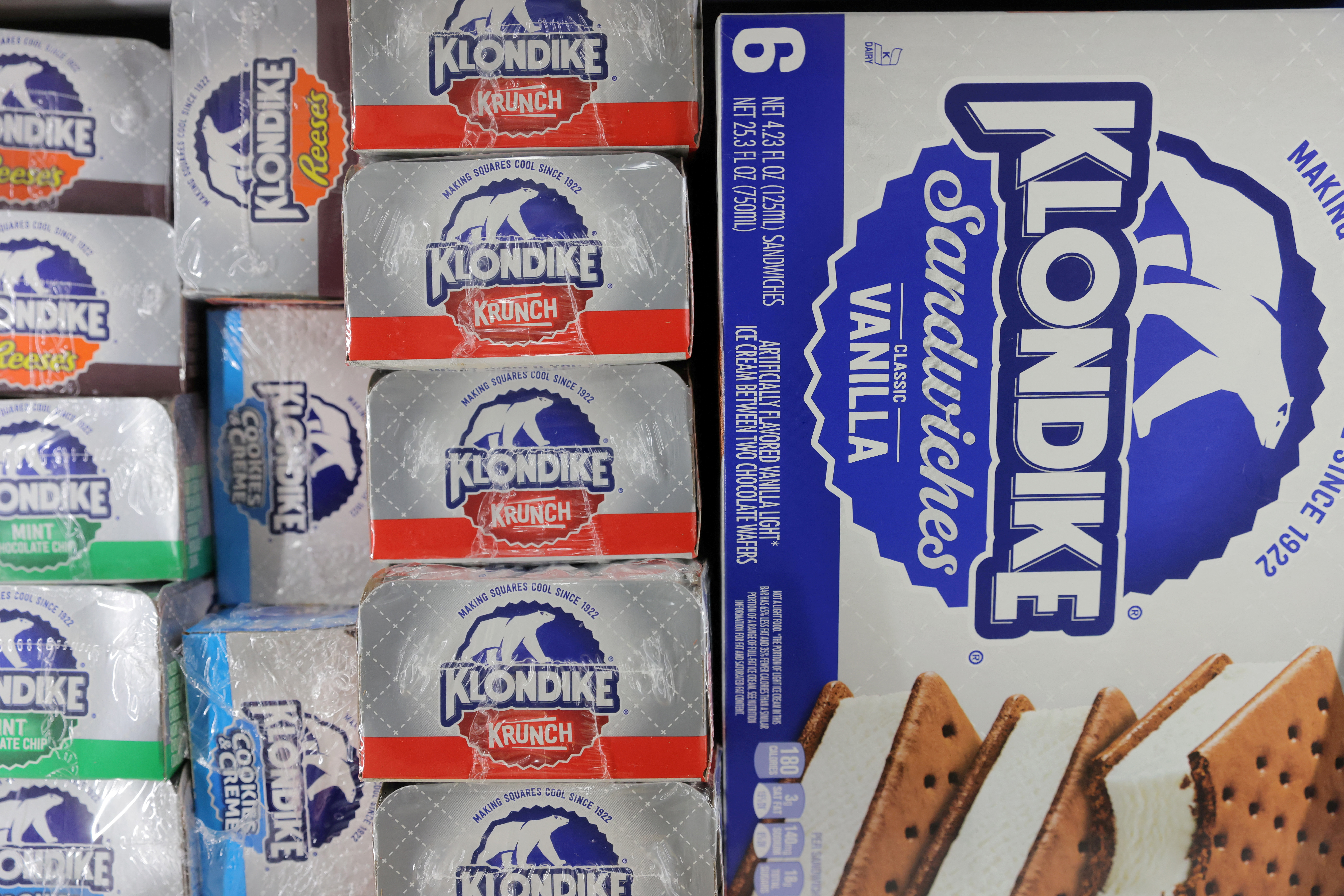[ad_1]

Klondike, a brand of Unilever, is seen on display in a store in Manhattan, New York City, U.S., March 24, 2022. REUTERS/Andrew Kelly/File Photo Acquire Licensing Rights
LONDON, Oct 26 (Reuters) – Unilever’s (ULVR.L) new boss Hein Schumacher on Thursday laid out long-awaited plans to simplify the business after admitting it had underperformed in recent years, but its shares fell as some investors were unimpressed.
The maker of Dove soap and Ben & Jerry’s ice cream met market expectations for third-quarter sales growth after raising prices at a slower rate, but failed to win back some shoppers who turned to cheaper products during a cost of living crisis.
Schumacher, who took up the role in July, said the company would now focus on 30 key brands which account for 70% of its sales. It will focus on improving its gross margin and not undertake any major or transformational acquisitions, he said.
“Our performance in recent years has not matched our potential. The quality of our growth, productivity and returns have all under-delivered,” Schumacher said.
Shares in Unilever fell 2.5% to a year-low in morning trading.
“I don’t think there’s anything there that’s new in terms of this strategic update,” Aviva portfolio manager Richard Saldanha said. “Clearly for investors, from my perspective, getting back to organic growth of 3-5% is key.”
Schumacher replaced Alan Jope who had a rocky final year at Unilever after a bungled attempt to buy GSK’s consumer healthcare business and billionaire activist investor Nelson Peltz joining the board.
Tineke Frikkee, a portfolio manager at Waverton Investment Management, said the new strategy was “well presented but overall underwhelming – investing and rewarding for higher growth and no significant portfolio restructuring.”
“This sounds similar to previous CEOs and will take time to be delivered,” she said.
The consumer goods industry has struggled for more than two years with soaring costs, as everything from sunflower oil and shipping to packaging and electricity became more expensive during the pandemic.
Unilever reported a 5.2% rise in underlying sales, meeting analysts’ average forecast, a company-provided consensus showed.
Underlying price growth for the third quarter was 5.8% while underlying volumes were down 0.6%. Prices increased at a faster pace than expected by analysts, who also forecast that volumes would rise for the first time in about two years. In Europe, volumes were down 10.7%.
“That is a feature of the inflation that we’ve had in our nutrition and our ice cream business…it’s the most difficult trade environment,” Chief Financial Officer Graeme Pitkethly said. “We’ve not yet recovered all the inflation in Europe and our European margins have come down and are quite significantly below the average of Unilever.”
The company also announced a senior executive shake-up, naming Fernando Fernandez, currently president of the beauty and wellbeing business, as its new chief financial officer.
In 2017, Nelson Peltz called for a slew of changes at P&G, a major rival of Unilever, and launched a proxy battle. Months after he joined P&G’s board in March 2018, the Tide detergent maker said it would simplify operations in its “most significant organization change” in two decades.”
Trian did not immediately comment for this story.
Reporting by Richa Naidu; editing by Mark Potter, Jason Neely and Matt Scuffham
Our Standards: The Thomson Reuters Trust Principles.
[ad_2]
Source link
